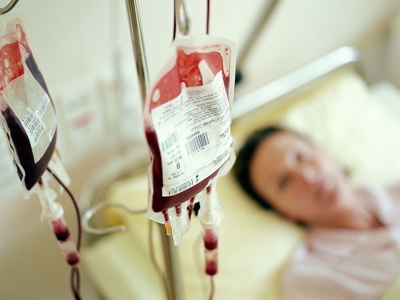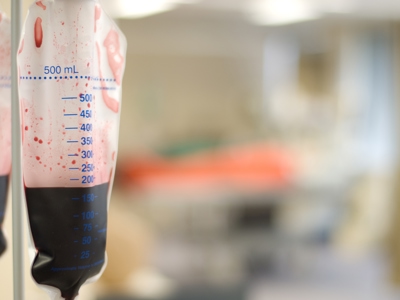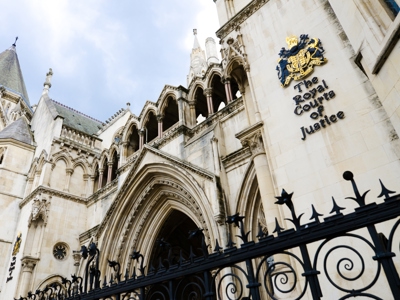
Public inquiries
Contact our specialist public inquiry team today
A public inquiry is set up to address significant public concern about major events to learn the facts of what happened and make findings and recommendations that will, hopefully, prevent something similar from happening again.
Public inquiries are a necessary and effective vehicle to ensure lessons are learnt for the future. They are high profile, complex, often generating thousands and thousands of documents and the focus of intense media scrutiny. Emma Jones heads the eight-person Leigh Day inquiry team.
Meet the public inquiry team
Our public inquiry experience
Infected Blood Inquiry
Emma Jones, Beatrice Morgan, Sandeep Michael and Sarah Westoby currently act for the Hepatitis C Trust and over 297 individuals in the Infected Blood Inquiry.
The Infected Blood Inquiry has investigated how many thousands of patients were provided with contaminated blood by the NHS during the 1970’s and 1980’s and, as a direct result, contracted one or more of the blood-borne viruses, HIV, HCV and HBV. According to the Department of Health, published data and scientific studies have estimated that around 4,700 people with bleeding disorders (such a haemophilia) and around 28,000 other people were exposed to or infected with HCV in the UK. Over 2000 are thought to have died as a result of the catastrophe. Lord Robert Winston described it as “the worst treatment disaster in the history of the National Health Service.”
The terms of reference are framed to provide reassurance about the thoroughness of the Inquiry. They reflect the themes that emerged from the consultation responses and cover: what happened and why; the impact on individuals infected and on their families; the response of Government and others; issues of consent; communication and information-sharing; treatment, care and support; whether there was a cover-up or a lack of candour from the relevant authorities; and responsibilities and recommendations.
Covid 19 Inquiry
Emma Jones, Beatrice Morgan, Tessa Gregory and Carolin Ott are instructed in the Covid 19 Inquiry.
They represent a number of organisations including John’s Campaign and the Relatives and Residents Association who have a combined reach of over 100,000 individuals. The Inquiry examines the UK’s preparedness for, response to and impact of the Covid-19 pandemic.
To date the team has obtained core participant status for their clients in Module 2B which will focus on the Welsh Government’s core political and administrative decision-making, and in Module 3 which will investigate the impact of Covid-19 pandemic on healthcare systems across the UK.
Undercover Policing Inquiry
Emma Jones and Erin Alcock are instructed in the Undercover Policing Inquiry.
The Inquiry will examine the full scope of undercover policing work across England and Wales. Two undercover policing units – the Special Demonstration Squad (SDS) and the National Public Order Intelligence Unit (NPOIU) – have prominence for the Inquiry; however, its work is not restricted to these units.
The Inquiry will seek to investigate the contribution that, over the years and in differing circumstances, undercover policing has made to tackling crime, how it was and is supervised and regulated, and its effect on individuals involved – both police officers and others who met them. Part of the terms of reference of the Inquiry is also to examine whether people may have been wrongly convicted in cases involving undercover police officers.
Afghanistan Inquiry
Tessa Gregory and Tom Short represent two Afghan families whose civilian relatives were allegedly unlawfully killed by British Special Forces during night raids in Afghanistan in 2011 and 2012.
In two sets of judicial reviews proceedings issued in 2019 and 2020 (R (Saifullah) v Secretary of State for Defence and R(Noorzai) V Secretary of State for Defence), the families alleged breaches of Article 2 ECHR by the Secretary of State arising from his failure to adequately investigate the killings, including a failure to consider systemic issues (including alleged cover-up of these killings and others by British Special Forces). Permission for judicial review was granted in each case, despite strenuous opposition from the Defendant.
In the course of proceedings, extraordinary disclosure from the Ministry of Defence was made public, including in Saifullah a cache of emails which revealed that numerous MoD officials (including senior officers within the Special Forces) were aware at the time of a possible “deliberate policy” of executing unarmed Afghan males and using false cover stories to cover up the true circumstances of those “massacre[s]”. The materials indicate that at the time of the killings there had been at least 33 suspicious killings of Afghans by British Special Forces over an eight-month period.
In December 2022, the Secretary of State announced to Parliament a Public Inquiry into the allegations will be held, chaired by Lord Justice Haddon-Cave. Leigh Day will represent the two families, to whom the Chair has given notice that he intends to designate them as Core Participants. The judicial review proceedings are stayed pending the outcome of the Inquiry.
News and blogs

Human rights were disregarded during COVID, Core Participant highlights at social care module of Inquiry
Helen Wildbore, Director of Care Rights UK will give oral evidence on Tuesday 29 July to the UK COVID-19 Inquiry’s Social Care module, presenting first-hand insight into how people’s rights and wellbeing were sidelined in the context of adult social care during the pandemic.

Lawyers give evidence to the Infected Blood Inquiry over Infected Blood Compensation Scheme
Ahead of more hearings by the Infected Blood Inquiry (IBI) human rights lawyers at law firm Leigh Day have been asked to provide feedback and share concerns about the way the infected blood compensation scheme is operating.

Lawyers at Leigh Day say Infected Blood Inquiry final report is vindication for the 300 clients they represent
Lawyers at Leigh Day, who represent around 300 people impacted by the infected blood scandal, say the findings of the Infected Blood Inquiry’s Report are a vindication of their clients’ fight for justice spanning four decades.

Bereaved families welcome opening of Independent Inquiry relating to Afghanistan
The families of 33 people, including eight children, killed by British Special Forces in Afghanistan between 2010 and 2013 have welcomed the official opening of the Independent Inquiry relating to Afghanistan which will be marked by two weeks of hearings at the Royal Courts of Justice in London. The hearings will be held from Monday 9th to Wednesday 11th October and from Monday 23rd to Friday 27th October.

